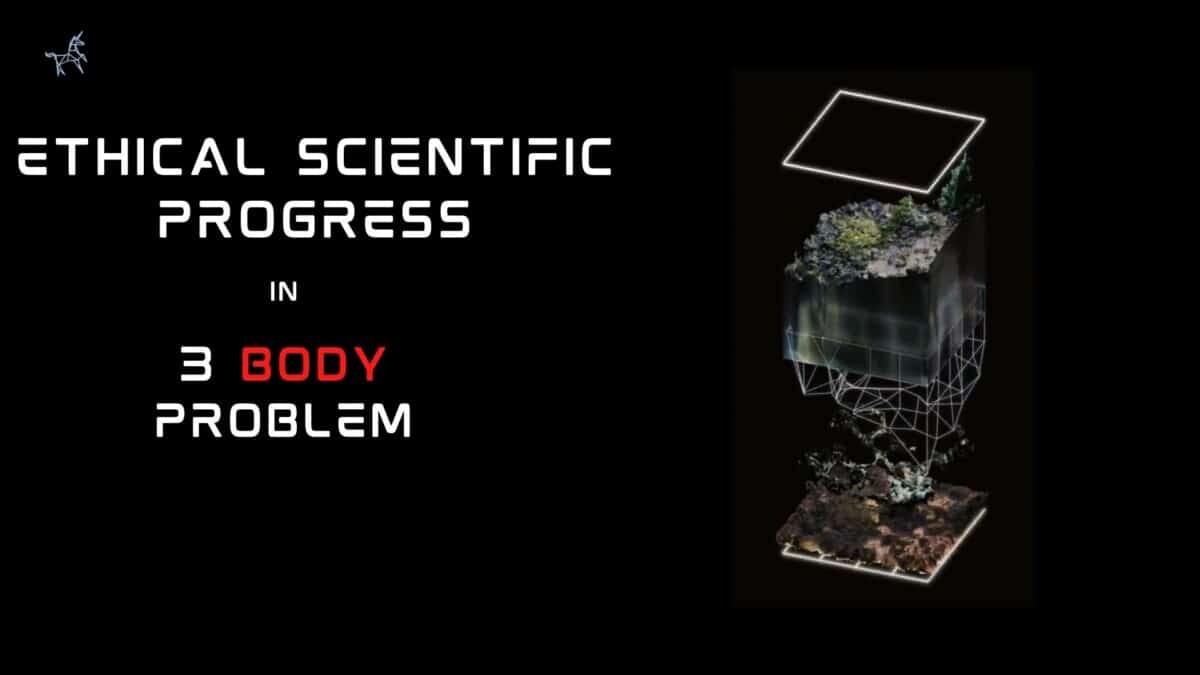As humanity pushes the boundaries of scientific understanding and develops increasingly powerful technologies, Liu Cixin’s acclaimed novel 3 Body Problem serves as a profound meditation on the ethical minefields accompanying such ambitious quests for knowledge. The book presents a gripping narrative steeped in moral dilemmas stemming from the consequences of scientific discovery and innovation.
From the harrowing depiction of state-sanctioned scientific oppression during the Cultural Revolution to the existential implications of making contact with alien civilizations, the story repeatedly confronts readers with the double-edged nature of scientific and technological progress. Could such advancements designed to elevate the human condition be twisted for destructive purposes? At what ethical cost to individuals or society might such powerful capabilities be obtained?
The novel’s central reveal of an elite scientific cabal choosing to initiate an alien invasion as a desperate measure to undermine an authoritarian system raises incredibly complex ethical quandaries with no clear “right” answer. Were the moral transgressions of this coalition justified as a means of overthrowing a profoundly repressive regime? Or did the catastrophic risks of inviting an invasion from xenocidal aliens constitute an inexcusable crime against humanity transcending all rationalization?
As the narrative envisions the existential consequences of this fateful decision pathway, it doesn’t flinch from depicting the brutal calculus civilizations may be forced to embrace when confronted with extinction scenarios. The alien civilizations’ cold willingness to exterminate or subjugate inferior species to maximize their resource acquisition underscores the alienating amorality of the universe’s indifference to ethical constructs.
Yet the human characters’ determination to fight to preserve human civilization, ingenuity, and spirit reflects the story’s core humanism – that our ethics and compassion are sources of strength in resisting such soulless utilitarianism. The portrait of scientists wrestling with these agonizing moral choices demonstrates both humanity’s frailties and its resilient capacity for virtue amid unimaginable adversity.
Against this backdrop of wrenching ethical conundrums, the novel sounds a clarion call for developing robust ethical frameworks, values scaffolding, and rigorous moral education to proactively steer technological development in socially responsible directions before potential catastrophic trajectories are set in motion.
Through its multifaceted engagement with ethics across scientific and technological domains, The Three-Body Problem provides an uncompromising narrative lens for inspecting the immense moral stakes facing our civilization as we stride into an era of increasingly powerful innovations. By grappling with these ethical minefields through the abstractions of speculative fiction, the novel cultivates important perspective-taking on the social responsibilities accompanying the pursuit of knowledge.
By using science fiction as a starting point for future forecasting, you can encourage critical thinking, imagination, and thoughtful debate on important issues surrounding ethics in science and technology. To learn more DM me or follow the link https://futurecenter.ventures/sci-fi-for-future-forecasting

